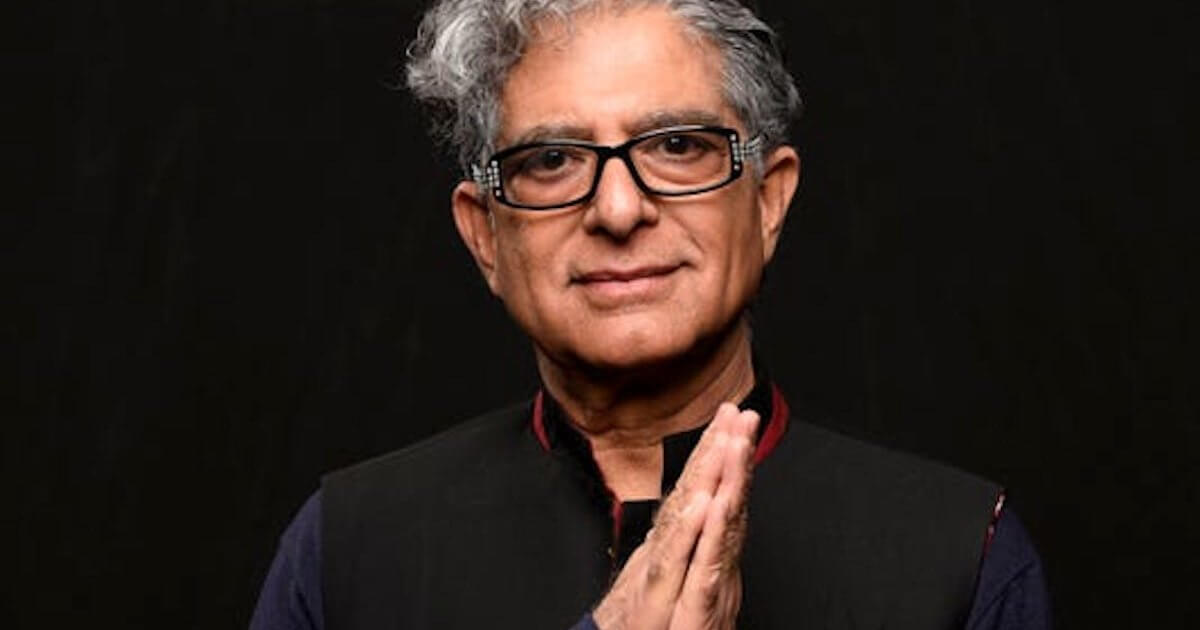Guidance In How To Practice Mindfulness
- Practice self reflection by asking yourself “who am I?” and be intimate with experiences and feelings.
- There are four basic levels of experience being in touch with your fundamental identity, accelerate emotions, self reflect, and then take action.
- Combining actions and compassion will allow a person to begin healing.
According to Chopra, this question is the first step on the path to practicing mindfulness, which is on a lot of people’s minds these days.
Read More4 Basic Levels Of Experience, According To Dr. Chopra
- Being intimate with your own cells being in touch with your fundamental identity
- Engage in accelerating your experience of empathy, compassion, kindness, joy, and equanimity
- Self reflection
- Action
“If we can combine our actions in the world with reflective self inquiry, love and compassion, and a state of secure, stable, ornamental, peaceful being without the addictions that humans have, then we can begin our journey of healing,” Dr. Chopra explains.
Stress Is The Perception Of Threats
Amid the coronavirus pandemic, many people are feeling stress like never before. So, in an effort to help people manage stress, Dr. Chopra’s 21 day meditation challenge is free of charge through his website or download all you have to do is sign up.
“That’s why we’re offering it, to help somebody” Dr. Chopra says. “Whatever degree we can help, we should.”
Dr. Chopra is quick to point out that stress is ultimately based off of perceptions made by us, and it affects our health and overall well-being.
“Stress is nothing other than the perception of threats,” Dr. Chopra says. “Whether it’s real or imagined doesn’t matter. You perceived stress emotionally or you imagine a super stressful, threatening situation, it doesn’t matter. It will create the same biological responses, compromising your immune system to basically offset its fine tuning and also increasing inflammation…So to the degree that you can manage your lifestyle, it’s good news for a lot of people.”
In addition to meditation, mindfulness can also be practiced by simply just answering questions your body might be asking. In order to address anxiety, a person must identify what questions their body is asking and where in the body the stress is coming from.
"The answers are our coping skills," Dr. Marianna Strongin, a clinical psychologist and founder of Strong In Therapy, told SurvivorNet in a previous conversation. "Some people are really good at always giving themselves answers…other people don't have the coping skills to answer their anxiety and as a result the anxiety increases. In mix of Covid-19 we are all facing the same questions. Some are facing them much more than others and some are better at answering those questions than others. What's really important is to pay attention to is what those questions are, what the frequency of those questions are, and how you're answering them.”
Dr. Marianna Strongin explains why questions cause anxiety, and how to answer them
In his work, Dr. Chopra not only practices mindfulness for himself, but takes into account how others are feeling and what they are doing. In a new documentary film, The Mindfulness Movement, he and his collaborators follow the lives of people who have experienced hardships ranging from chronic illnesses to addiction and have been actively practicing mindfulness in their lives in an effort to be happier and healthier.
“In my mind, I think being comes first, healing comes second, thinking and reflecting comes third, and doing comes last,” Dr. Chopra says. “But in our societies it’s the opposite, doing, doing, doing without thinking, So I said ‘why not’ let’s listen to the doers as well. It’s an experiment. If it works I’ll continue to do it and if it doesn’t, I’ll abandon it.”
Dr. Chopra’s View Of Criticism And How He Endures It
Known for his iconic teachings in alternative medicine, Dr. Chopra says, at times, he has faced skeptics throughout his career. However, Dr. Chopra says that he often shrugs off judgement from fellow doctors and focuses on the work he’s passionate about, and says recent studies have validated his teachings.
“Yeah, there’s been a lot of criticism,” Dr. Chopra admits. “People roll their eyes, but I’m pretty used to that, you know, but now since that research in the last few decades is actually validating what has been said to thousands in the us and also what has been looked at now for 50 years, at least in my area as a position. So I’m finding some validation for what used to be called pseudoscience.”
Learn more about SurvivorNet's rigorous medical review process.

